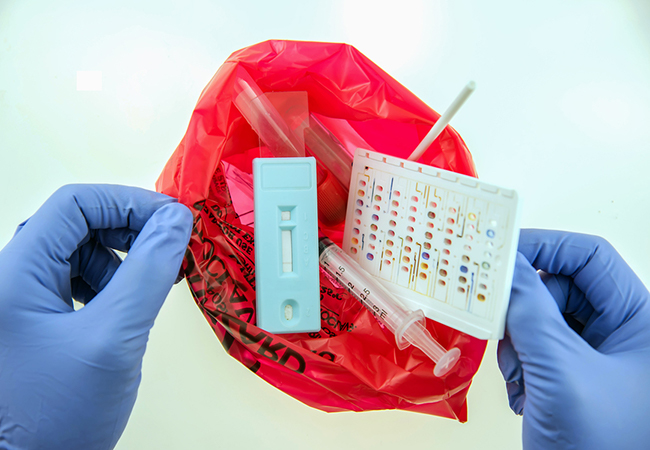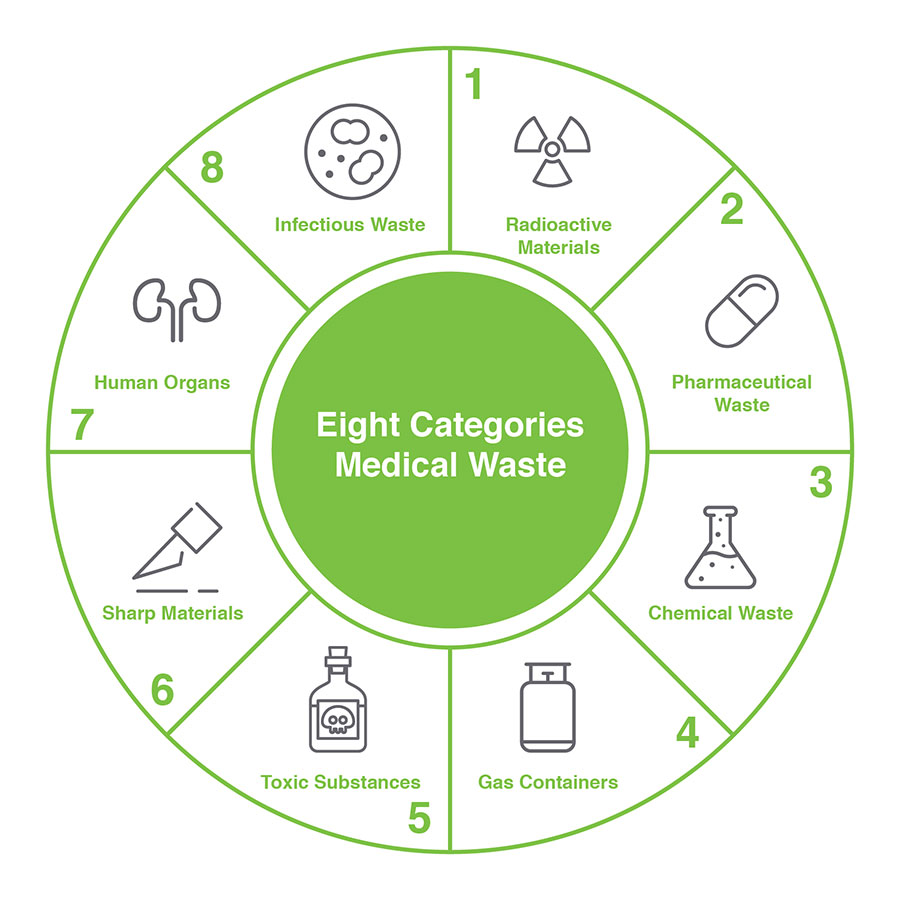Your Trusted Partner: Medical Waste Removal Services Tailored to Your Needs
Your Trusted Partner: Medical Waste Removal Services Tailored to Your Needs
Blog Article
Stay Ahead of Laws: Expert Guidance on Medical Garbage Disposal
In a world where the healthcare industry is regularly advancing, it is crucial for clinical facilities to stay in advance of laws when it comes to the appropriate disposal of medical waste. With rigorous guidelines and frequent regulatory modifications, it can be challenging to navigate the intricacies of this process. Nevertheless, with experienced advice, centers can make certain compliance and mitigate risks connected with incorrect waste disposal. From understanding the various groups of medical waste to applying the appropriate collection and partition approaches, this conversation will supply beneficial understandings and workable suggestions to aid centers remain ahead of regulations in the ever-changing landscape of medical waste disposal.
Comprehending Clinical Waste Categories
Understanding clinical waste categories is essential for appropriate disposal and management in medical care centers. Medical waste describes any kind of waste created by health care activities that might position a hazard to public wellness or the setting. It is important to classify medical waste precisely to guarantee its safe handling, transport, treatment, and disposal.
There are numerous groups of clinical waste that health care centers need to be knowledgeable about. One of the most typical groups include contagious waste, pathological waste, sharps waste, pharmaceutical waste, and chemical waste. Each group has specific standards and policies for its proper monitoring and disposal.
Pathological waste refers to human tissues, organs, or body parts that require special handling and disposal. Pharmaceutical waste comprises expired, extra, or infected medicines that require cautious handling and disposal.
Remaining Up-To-Date With Regulatory Modifications
Staying current with regulatory changes is important for health care centers to make sure conformity and appropriate management of clinical garbage disposal. medical waste removal services. With guidelines continuously developing, it is crucial for health care facilities to remain current to prevent penalties, penalties, and prospective damage to the environment and public wellness
To remain ahead of regulative modifications, health care centers must establish a system for monitoring and monitoring updates. This can be done by registering for regulative newsletters, participating in workshops and conferences, and proactively taking part in industry organizations. Additionally, centers ought to mark a personnel or team in charge of remaining informed and distributing information to pertinent stakeholders.
Routine interaction with regulatory firms is likewise important. Medical care facilities must develop connections with local, state, and government firms to ensure they understand any adjustments in regulations that might impact their waste administration practices. This can be done via regular meetings, engagement in public comment periods, and aggressive engagement with regulative firms.
Moreover, health care centers must consider partnering with waste monitoring companies that focus on clinical garbage disposal (medical waste disposal services with WasteX). These firms are often fluent in the most up to date regulations and can supply support and assistance to ensure compliance
Executing Correct Collection and Segregation Techniques
To successfully take care of clinical waste disposal, health care centers need to develop correct collection and partition techniques according to regulative guidelines. Carrying out these approaches guarantees the risk-free handling and disposal of possibly harmful products, secures the setting, and lessens the danger of injuries and infections to medical care employees and the public.
Correct collection and partition approaches entail using designated containers and identifying systems. Health care facilities must offer clearly identified containers for different types of clinical waste, such as sharps, transmittable waste, pharmaceutical waste, and non-hazardous waste. These Bonuses containers need to be color-coded and plainly significant to prevent confusion and advertise very easy identification.
In addition, medical care centers ought to train their team on the right procedures for gathering and segregating clinical waste. This consists of educating them on the various kinds of waste, the ideal containers to utilize, and the value of following regulations and guidelines. Normal training sessions and refresher courses need to be carried out to ensure that personnel continue blog to be up-to-date on ideal methods.
Furthermore, medical care facilities should develop a system for regular collection and disposal of medical waste. This might include partnering with accredited waste management companies that focus on clinical waste disposal. These business will certainly ensure that the gathered waste is carried and thrown away in compliance with regulatory needs.
Choosing the Right Disposal Techniques

Incineration is just one of one of the most efficient and common approaches for getting rid of specific kinds of clinical waste, such as pathological waste and sharps. It includes the regulated burning of waste at heats, reducing it to ash. Incineration can launch harmful pollutants right into the air and add to air contamination.

Various other disposal techniques consist of chemical treatment, microwave therapy, and landfilling. Chemical treatment entails using chemicals to counteract the waste and decontaminate. Microwave treatment investigate this site makes use of microwave energy to warmth and sanitize the waste. Landfilling entails hiding the waste in a designated land fill area (medical waste disposal services with WasteX). Nonetheless, landfilling should be the last option as a result of the possible threat of contamination to dirt and groundwater.
Making Sure Conformity Via Documents and Training
After meticulously considering the suitable disposal techniques for medical waste, health care facilities have to make certain conformity with laws and minimize environmental impact by executing effective documentation and training procedures. This action is crucial in preserving a sustainable and safe environment for both medical care employees and the public.

Training is equally crucial in making certain compliance with guidelines. Medical care workers that deal with clinical waste needs to receive suitable training on waste partition, handling, and disposal treatments. This training should cover topics such as the appropriate use individual protective equipment, identification of different sorts of waste, and the correct disposal techniques for every waste group. By giving extensive training, health care facilities can empower their team to make educated decisions and lessen the threat of improper waste disposal.
Verdict
Finally, remaining in advance of regulations in medical waste disposal is vital for medical care facilities. medical waste removal near me. Comprehending the various groups of clinical waste, remaining upgraded with regulatory changes, executing appropriate collection and segregation approaches, picking the proper disposal techniques, and guaranteeing conformity with documents and training are all necessary steps. By following these standards, health care organizations can properly get rid of and manage of medical waste in a responsible and safe way
From understanding the various groups of clinical waste to implementing the right collection and partition techniques, this discussion will certainly offer actionable suggestions and valuable insights to aid facilities remain ahead of laws in the ever-changing landscape of medical waste disposal. - medical waste disposal services with WasteX
The most common categories include contagious waste, pathological waste, sharps waste, pharmaceutical waste, and chemical waste. Medical care centers should supply clearly labeled containers for different types of medical waste, such as sharps, contagious waste, pharmaceutical waste, and non-hazardous waste. Health care centers need to establish an extensive system to tape-record and track all elements of clinical waste disposal, consisting of kinds of waste produced, quantities, and disposal methods made use of. Health care employees that manage clinical waste must get appropriate training on waste segregation, dealing with, and disposal procedures.
Report this page